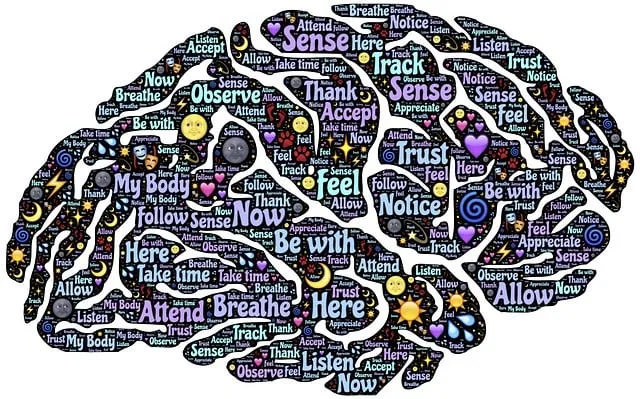Kaiser Permanente mental health Westminster implements positive thinking programs integrating self-awareness exercises into community healthcare. These holistic initiatives empower members with tools for resilience, fostering open conversations about mental wellness and enhancing access to services. Combining evidence-based techniques like mindfulness, affirmations, and gratitude practices, these programs support emotional healing and reduce stress over time. Tracking progress through mood trackers and goal-setting worksheets ensures tailored strategies for individual well-being improvement.
Discover the transformative power of positive thinking with Kaiser Permanente’s innovative mental health initiatives. This article explores effective strategies, inspired by the successful Westminster Approach, to integrate positive thinking exercises into daily routines. Learn how to design tailored practices for lasting benefits. We’ll guide you through implementing these techniques, measuring success, and leveraging Kaiser Permanente resources for optimal well-being, drawing insights from their comprehensive mental health programs.
- Understanding Kaiser Permanente's Mental Health Initiatives
- The Westminster Approach to Positive Thinking Programs
- Designing Effective Positive Thinking Exercises
- Integrating Practices into Daily Life for Sustained Benefits
- Measuring Success and Tracking Progress with Kaiser Permanente Resources
Understanding Kaiser Permanente's Mental Health Initiatives

Kaiser Permanente, a renowned healthcare provider, has been at the forefront of promoting mental health and well-being among its members. The organization’s Mental Health Initiatives in Westminster, California, are a testament to their commitment to holistic care. These initiatives focus on various aspects of mental wellness, aiming to empower individuals with tools for improved mental resilience. One notable approach is through self-awareness exercises designed to help members cultivate a positive mindset and boost their confidence.
By offering these programs, Kaiser Permanente encourages active participation in one’s mental health journey. The self-awareness exercises are not just isolated activities but are integrated into the fabric of community healthcare, fostering an environment where open conversations about mental wellness are encouraged. This strategy aligns with the broader goal of improving access to mental health services and ensuring that individuals feel supported on their path to optimal mental health.
The Westminster Approach to Positive Thinking Programs

The Westminster Approach to Positive Thinking Programs is a holistic and evidence-based strategy that has gained recognition for its effectiveness in enhancing mental well-being. Kaiser Permanente, a renowned healthcare organization, has embraced this approach to develop comprehensive programs aimed at fostering inner strength development and self-care practices among its members. By integrating positive thinking techniques into their mental health services, Westminster prioritizes emotional healing processes, ensuring individuals are equipped with the tools to navigate life’s challenges with resilience.
This innovative approach recognizes that cultivating a positive mindset is a powerful tool for overall well-being. Through structured exercises and strategies, participants learn to challenge negative thought patterns, build coping mechanisms, and promote self-compassion. The programs are designed to be accessible and adaptable, catering to diverse needs, making it an excellent resource for those seeking to improve their mental health, including the vast network of Kaiser Permanente members.
Designing Effective Positive Thinking Exercises

Designing effective positive thinking exercises involves tailored strategies that cater to individual needs, much like Kaiser Permanente mental health services in Westminster. A well-structured program should incorporate a mix of techniques such as mindfulness meditation, affirmations, and gratitude practices, which have been shown to enhance mental wellness coaching programs development. These exercises should be integrated into daily routines to foster consistent practice, much like the comprehensive Mental Health Education Programs Design advocated for by professionals.
For optimal impact, positive thinking exercises should be designed with a clear understanding of potential barriers and risk management planning for mental health professionals. Incorporating diverse activities ensures engagement and accessibility, catering to different learning styles and personal preferences. By encouraging participants to explore their thoughts and emotions, these exercises contribute to the overall development of mental health professionals, ensuring they can effectively guide others towards improved mental wellness in a supportive environment.
Integrating Practices into Daily Life for Sustained Benefits

Integrating positive thinking practices into daily routines is key to reaping sustained benefits, according to experts at Kaiser Permanente mental health in Westminster. By making these techniques a part of one’s regular schedule, individuals can foster ongoing emotional well-being promotion. Simple yet powerful strategies, such as mindful meditation, grateful journaling, or even positive self-talk, have been shown to significantly reduce stress and anxiety levels over time.
This approach aligns with broader mental health policy analysis and advocacy efforts aimed at reducing the stigma surrounding mental illness. By adopting these practices, individuals can not only improve their personal resilience but also contribute to a more supportive societal environment for those facing mental health challenges. Through consistent engagement, these positive thinking exercises become powerful tools in one’s mental wellness arsenal.
Measuring Success and Tracking Progress with Kaiser Permanente Resources

Measuring success and tracking progress is a vital component of any positive thinking exercise. At Kaiser Permanente mental health Westminster, we offer a range of resources designed to help individuals quantify their well-being and identify areas for growth. These tools can include daily mood trackers, weekly goal-setting worksheets, and even advanced analytics platforms that provide insights into long-term progress. By regularly assessing your mental state and comparing it against established benchmarks, you gain a clearer understanding of the impact of your positive thinking practices.
Our healthcare provider cultural competency training emphasizes the importance of continuous improvement, encouraging clients to view their journey as an ongoing process. Resources like those provided by Kaiser Permanente help in managing stress, boosting self-esteem, and fostering resilience. Through regular feedback loops, individuals can identify patterns, make informed decisions about their mental health, and adjust their strategies accordingly. This proactive approach not only enhances overall well-being but also ensures that positive thinking exercises remain effective and tailored to individual needs.
Implementing positive thinking exercises, as advocated by organizations like Kaiser Permanente and the Westminster Approach, can significantly enhance mental well-being. By integrating these practices into daily routines, individuals can foster resilience, improve mood, and achieve a more balanced perspective. Kaiser Permanente’s resources provide valuable tools for tracking progress, ensuring sustained benefits over time. Embracing these initiatives, inspired by Westminster’s successful programs, empowers folks to take charge of their mental health and cultivate a brighter outlook on life.






